#i.lászló
Explore tagged Tumblr posts
Text
ROUND 4, MATCH 2
Admin's commentary: Good thing László is a saint, because only God can help him now...
***
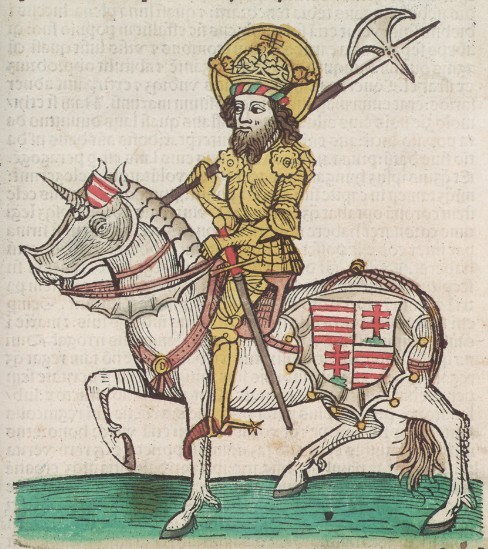
I.László (Ladislav I.) 1077-1091
as mentioned bellow, during his rule, the whole Salamon situation was sorted out, and the foreign relations were consolidated, so that's nice
or would be if he also wasn't the first king of Hungary to focus on expanding the borders of the country, he tried to conquer Croatia (using some business with his sister, who married there, as an excuse), but in his absence Hungary was attacked by Pechenegs, so he had to rush back home
finished christianization of Hungary, during his reign developing religious culture, canonization of first Hungarian saints (I.István, his son Imre, saint Svorad and Benedict), also founded new bishoprics, chapters and provostrics
lest you think he was all gung-ho about the church and would let it do whatever it wanted, he also wrote two law codes, which among other things limited the right of the church to provide asylum to criminals
he also, just like Kálman mentioned in the previous week, called up a church synod, where many important questions were settled (celibacy of the clergy, tithes etc.); overall this guy was kind of a big deal, even beyond the sainthood he later obtained?
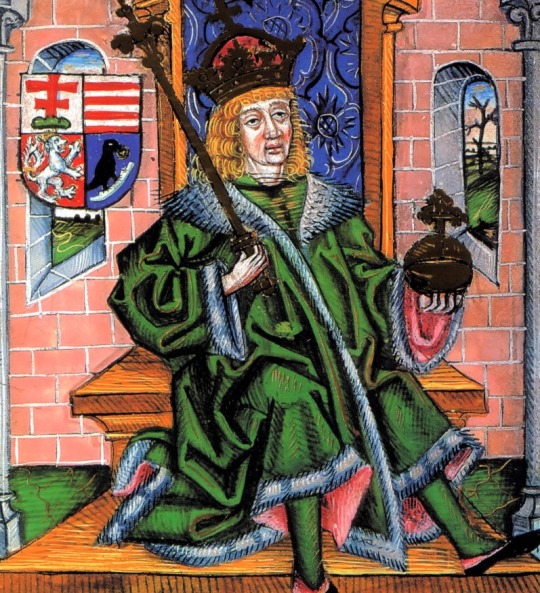
I.Mátyás (Matej I.); also known as Hunyadi Mátyás (Matej Korvín) 1458-1490
I mean, do I even have to say anything??? you know who this guy is right.
fought the Ottomans. supported arts and sciences. instituted important reforms. founded Academia Istropolitana. made Buda the capital and built the Buda Castle. gained the crown of Bohemia and stole territory from Austria. the man. the myth. the legend.
@deetherusalka said about him: "Lmao Bohemian crown snatcher, it's still so funny to me how in Czechia he's always presented as the evil himself and then everywhere else he's celebrated (which is not wrong imho! it's just funny how the narrative changes depending on perspective you learn about it)"
@durzarya said about him: #listen i love Mátyás király and i have voted for him#but my guy had some interesting policies#hilarious information about him: at 19 he captured Vlad Țepeș
@biksarddedrak said about him: #It's not even fight#It's just bloody beating#Matyás is remembered even in many historical legends as a good and just ruler#he reformed military and made the world fear Hungary#first profesional army#he managed to pay not only for the one for a THREE armies at a time#also his love with his wife Beatrice is a thing of a legends#The GOOD sort of legends#also I am completely obsessed with a way how his name is pronouced#seriously check that out it's hilarious#black army
@partialtotheperiwinkleblue said about him: "Seriously, who else has his own cartoon series and fairy tale genre?" #the goat#he did a lot of work for someone who was originally chosen as a figurehead at 14
11 notes
·
View notes
Text
ROUND 1B, MATCH 4
***
WHAT MY PROFESSOR OF MEDIEVAL HISTORY SAID ABOUT THEM
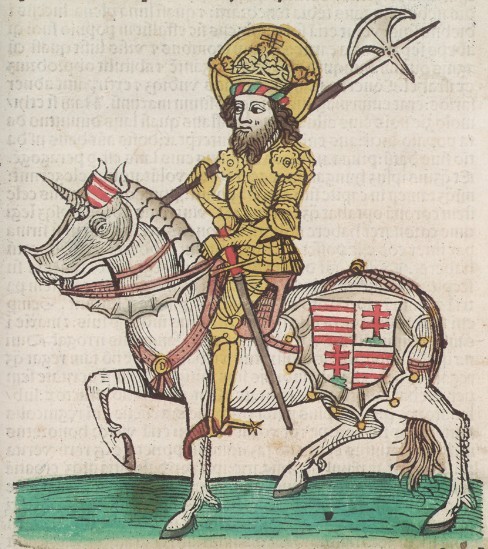
I.László (Ladislav I.) 1077-1091
as mentioned bellow, during his rule, the whole Salamon situation was sorted out, and the foreign relations were consolidated, so that's nice
or would be if he also wasn't the first king of Hungary to focus on expanding the borders of the country, he tried to conquer Croatia (using some business with his sister, who married there, as an excuse), but in his absence Hungary was attacked by Pechenegs, so he had to rush back home
finished christianization of Hungary, during his reign developing religious culture, canonization of first Hungarian saints (I.István, his son Imre, saint Svorad and Benedict), also founded new bishoprics, chapters and provostrics
lest you think he was all gung-ho about the church and would let it do whatever it wanted, he also wrote two law codes, which among other things limited the right of the church to provide asylum to criminals
he also, just like Kálman mentioned in the previous week, called up a church synod, where many important questions were settled (celibacy of the clergy, tithes etc.); overall this guy was kind of a big deal, even beyond the sainthood he later obtained?
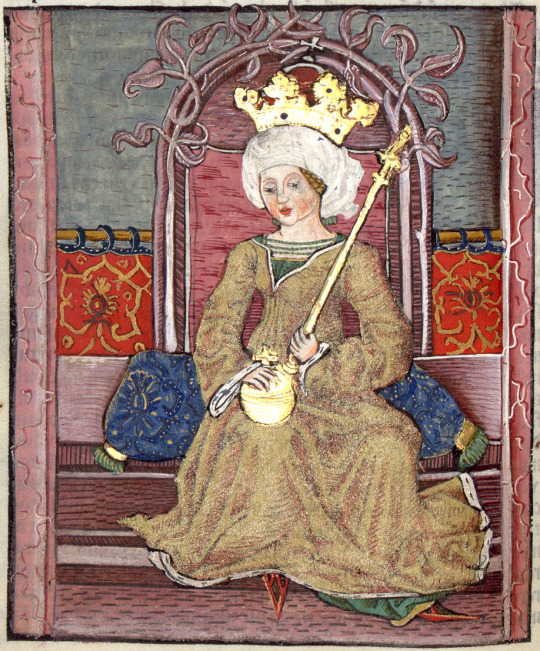
I.Mária (Mária I.) 1382-1385 1386-1395
her father died when she was still a minor, so the nobility took the liberty of supporting antiking, sparking a civil war
Zsigmond of Luxembourg, then her fiance, saved her from captivity by rebellious nobles and secured her (and his own) possition on the throne
lest you think this was a start of some lovestory, they apparently ended up hating each other's guts, honestly Zsigmond's paternal grandparents Eliška Přemyslovna (Elizabeth of Bohemia) and Jan Lucemburský (John of Luxembourg) give one a pretty good image of what those two might've ended up looking like if they had kids
but before that family drama could take place, Mária fell off a horse and just... died. apparently, she was pregnant at the time.
honestly not much to say about her merits as a monarch, but her story is pretty sad, and hey, she's a girl, and those usually do numbers on these polls, so
7 notes
·
View notes
Text
ROUND 2, MATCH 6
Admin's commentary: Ah, a classic knight vs serpent battle. Like I don't want to seem like I have favourites in any match, but this one isn't going to be super exciting I'm affraid.
***
WHAT MY PROFESSOR OF MEDIEVAL HISTORY SAID ABOUT THEM
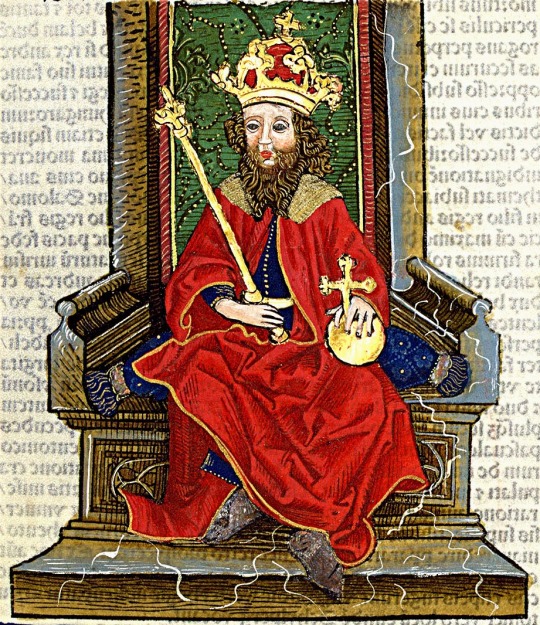
Salamon (Šalamún) 1063-1074
he had several cousins, which ofc is an inherently dangerous situation for an Arpád, so he later made a deal with them and gave them duchies, they even defended the country together
unfortunately, all of this family idyll couldn't last forever, because Arpáds, and as mentioned in the I.Géza entry, one of said cousins overthrew him because of Salamon's attempt at his life
Solomon tried several times to regain the throne, but unsuccesfully, and his support in exile slowly dwindled, untill he was forced to give up and officially declare I.László the true king of Hungary
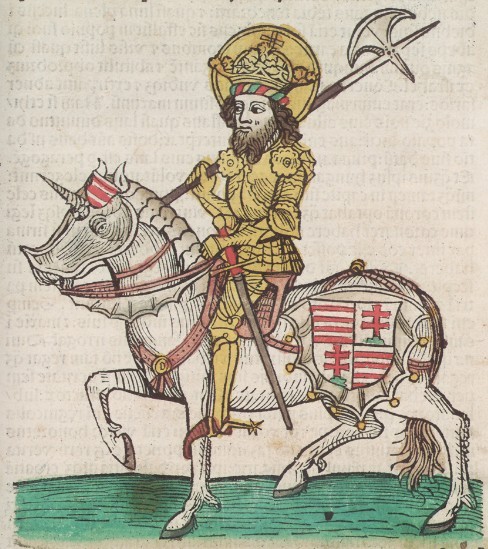
I.László (Ladislav I.) 1077-1091
as mentioned bellow, during his rule, the whole Salamon situation was sorted out, and the foreign relations were consolidated, so that's nice
or would be if he also wasn't the first king of Hungary to focus on expanding the borders of the country, he tried to conquer Croatia (using some business with his sister, who married there, as an excuse), but in his absence Hungary was attacked by Pechenegs, so he had to rush back home
finished christianization of Hungary, during his reign developing religious culture, canonization of first Hungarian saints (I.István, his son Imre, saint Svorad and Benedict), also founded new bishoprics, chapters and provostrics
lest you think he was all gung-ho about the church and would let it do whatever it wanted, he also wrote two law codes, which among other things limited the right of the church to provide asylum to criminals
he also, just like Kálman mentioned in the previous week, called up a church synod, where many important questions were settled (celibacy of the clergy, tithes etc.); overall this guy was kind of a big deal, even beyond the sainthood he later obtained?
5 notes
·
View notes
Text
ROUND 3, MATCH 3
Admin's commentary: *sounds of desperately biting her tongue in an effort to stay neutral*
***
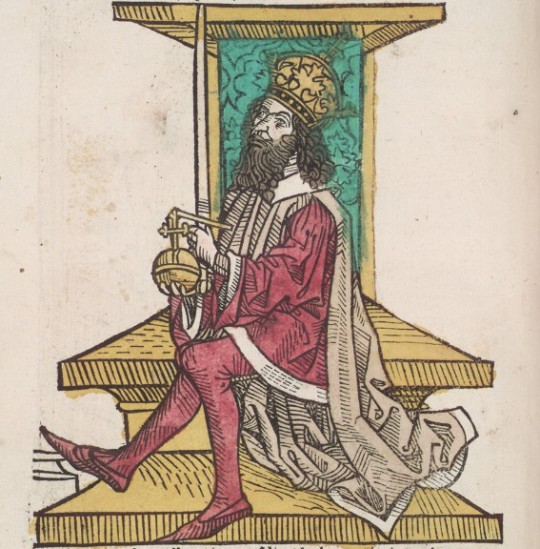
II.András (Ondrej II.) 1205-1235
on his backstory see entries for Imre and III.László, allegedly ascended the throne with the ambitions to build a "new order" - which he did, if by "new order" you mean "seeds of feudal anarchy" (buckle up kids, this one is going to be a long one, basically this dude did a lot of things and none of them well)
tried to gain support of the nobility by giving away royal land (he later came to his senses and tried to gain back at least some of it, but it was too late), and then compensated for the lost income by a series of questionable orders (special taxation, customs fees - which hurt Hungarian trade, devaluation of the coinage); all of this empowered his closest circles while also being a Bad Time for everyone else, lower nobility (or its closest equivalent in medieval Hungary) eventually got fed up with his sheneningans and forced him to issues the Golden Bull of Andrew II., a document entrenching the privileges of all nobility regardless of wealth (freedom from taxation, right to rise up against the king if he doesn't respect their rights etc.), many consider this the real beginings of nobility in Hungary (privileged classes of course existed before, but only the Golden Bull unified them under one label)
the three aims of his foreign policy were keeping good relations with the Byzantines (which he doesn't seem to have failed particullarly badly in), gain the throne of Galicia (which he did get part of in an agreement with Leszek, duke of Poland - don't know which one exactly) and go on a crusade to the Holy Land (which was an unmitigated disaster, basically he left for a while and when he returned, the country was in shambles)
he also settled the Teutonic Order in Hungary and gave them various privileges, hoping to use them to protect the country against Cuman raids, but then they started causing trouble and act as a state within the state, so in the end he was also the one who kicked them away
he did a couple of good things too, like settle more Saxons in Hungary, welcome mendicant orders into the country and so on, but honestly these things pale in comparison with his numerous fuckups
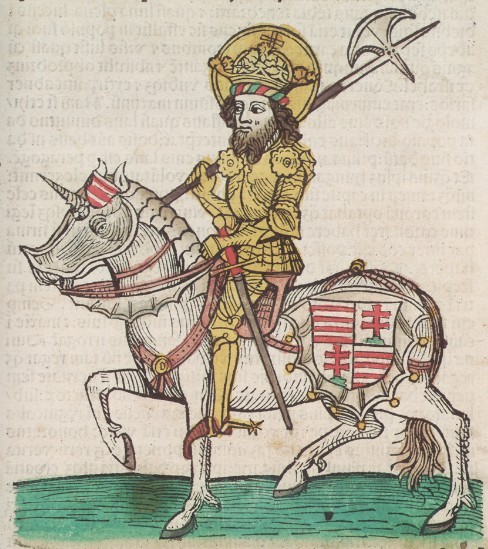
I.László (Ladislav I.) 1077-1091
as mentioned bellow, during his rule, the whole Salamon situation was sorted out, and the foreign relations were consolidated, so that's nice
or would be if he also wasn't the first king of Hungary to focus on expanding the borders of the country, he tried to conquer Croatia (using some business with his sister, who married there, as an excuse), but in his absence Hungary was attacked by Pechenegs, so he had to rush back home
finished christianization of Hungary, during his reign developing religious culture, canonization of first Hungarian saints (I.István, his son Imre, saint Svorad and Benedict), also founded new bishoprics, chapters and provostrics
lest you think he was all gung-ho about the church and would let it do whatever it wanted, he also wrote two law codes, which among other things limited the right of the church to provide asylum to criminals
he also, just like Kálman mentioned in the previous week, called up a church synod, where many important questions were settled (celibacy of the clergy, tithes etc.); overall this guy was kind of a big deal, even beyond the sainthood he later obtained?
4 notes
·
View notes
Text
ROUND 2, MATCH 3
Admin's commentary: Aww, I kinda liked the likely loser of this one...
***
WHAT MY PROFESSOR OF MEDIEVAL HISTORY SAID ABOUT THEM
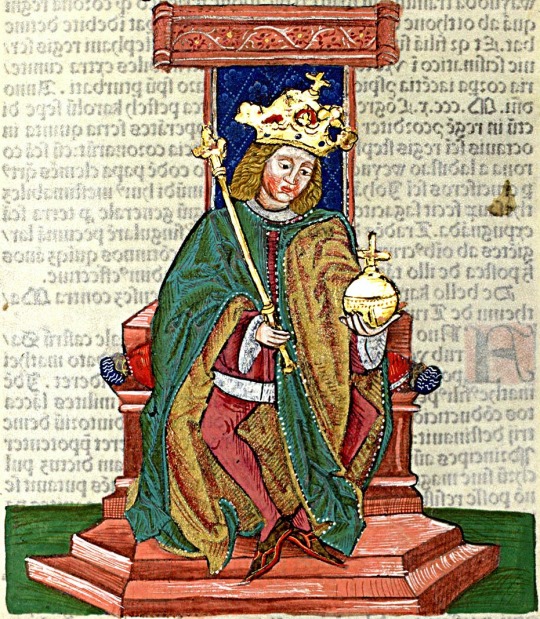
I.Károly (Karol I.) - but be honest, we all know him as Károly/Karol Róbert 1301-1342
spent the first few years on the throne fending off antikings, namely Václav III., who then gave up and passed his claim onto Otto of Bavaria, whom Károly subsequently defeated
upon his ascencion to the throne country basically ruled by the feuding nobles, also know in this period as oligarchs, he managed to consolidate his reign and regain most of the royal power trough a combination of warfare (Rozgony/Rozhanovce 1312 HELLOOO) and appeasing them with court functions
I don't even know where to START with this guy's reforms - seriously, he minted the first gold coins in Hungary, instated the banderial system (levy of the royal army from the soldiers drafted by the cities, comitates and nobles, look it was a big deal, just trust me), reformed the administation of the country and so, so much more I can't get into; basically, this man was Maria Theresa before Maria Theresa
he mostly avoided wars because of the bad shape of Hungarian treasury, though he did lead a couple of them (conflicts with Venice and Wallachia)
initiator of the 1335 meeting in Visegrád with John of Luxembourg and Casimir III. of Poland; basically, we have him to thank for the name Visegrád Four
(admin is from Košice, so he has just inherently won in her eyes because of Rozhanovce)
@tunderilona said about him: #károly róbert sweep he literally reformed the entire country
@cdqueer said about him: #hes got that anjou rizz (perfected by i. lajos <3)
@tonhalszendvics said about him: #of course károly robi had to fight off everyone in his first years#he was crowned officially in 1308#he fucked up two times before that#i mean you need to be crowned in székesfehérvár by the archbishop of esztergom with the holy crown#third time the charm he did it
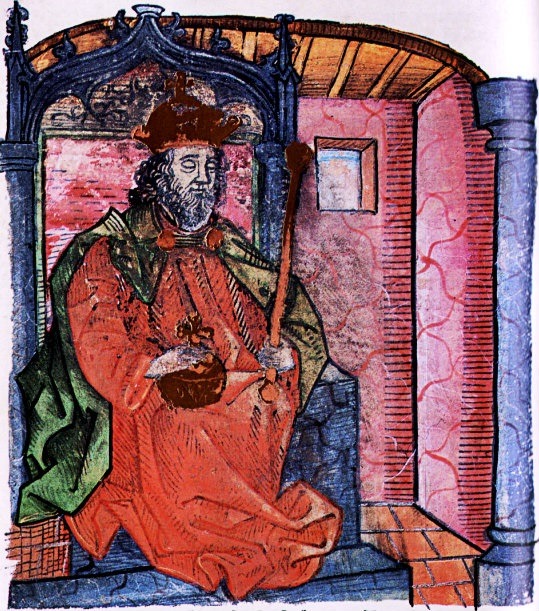
II.Béla (Belo II.) 1131-1141
diversity win, the man who just executed you and several other people in Arad for opposing him is disabled (blinded by his uncle Kálman from the previous poll)
apparently a combination of guilty conscience and childhood trauma from aforementioned blinding later led him to start drink heavily, hence the short reign
pretty successful foreign policy, consolidated relations with Bohemia, church and Holy Roman Empire, also conquered northern Bosnia and part of Dalmatia, so that's nice
founded the Royal Chancellory (a super important administrative organ in Middle Ages)
in general very pious and a friend of the church, supported the cult of saint I.László
9 notes
·
View notes
Text
Round 3 Roundup And Round 4 Announcement
Once again, thank you all so, so much for participating! This round was super exciting; at this point, we have pretty much eliminated all but the strongest candidates, and coming into the semifinals, the plot only thickens. At this point, the question of who some of the most popular monarchs of Hungary are is pretty much settled - we are only looking for the very best one. I.Lajos, a.k.a. Louis I. the Great, finally found his match in the founder himself. II.Ulászló's luck has run out at last as he squared off against Károly Róbert himself. I.László did to II.András pretty much that he did to that Cuman on that famous fresco. And finally, poor Zsigmond held his own against I.Mátyás as well as can anyone expect to hold his own against Matthias Corvinus himself. Coming into semifinals, our table looks like this:

6 notes
·
View notes
Text
ROUND 1B, MATCH 3
***
WHAT MY PROFESSOR OF MEDIEVAL HISTORY SAID ABOUT THEM

Salamon (Šalamún) 1063-1074
he had several cousins, which ofc is an inherently dangerous situation for an Arpád, so he later made a deal with them and gave them duchies, they even defended the country together
unfortunately, all of this family idyll couldn't last forever, because Arpáds, and as mentioned in the I.Géza entry, one of said cousins overthrew him because of Salamon's attempt at his life
Solomon tried several times to regain the throne, but unsuccesfully, and his support in exile slowly dwindled, untill he was forced to give up and officially declare I.László the true king of Hungary

II.Károly (Karol II.) 1385-1386
only mentioned as antiking for Mária I., overthrown by Zsigmond of Luxembourg, honestly not much to say about this dude apparently
3 notes
·
View notes
Text
ROUND 1A, MATCH 6
***
WHAT MY PROFESSOR OF MEDIEVAL HISTORY SAID ABOUT THEM
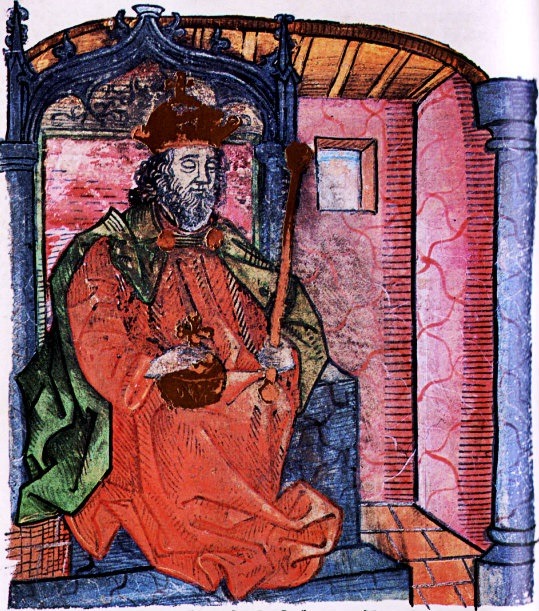
II.Béla (Belo II.) 1131-1141
HOLY SHIT I MISTOOK HIM FOR III.BÉLA AND NOW I HAVE MATTHIAS CORVINUS RUNNING AGAINST SOME BYZANTINE-LOVING PANSY, OH NOOO- (anyway he wins this round and it's not even close)
anyway, diversity win, the man who just executed you and several other people in Arad for opposing him is disabled (blinded by his uncle Kálman from the previous poll)
apparently a combination of guilty conscience and childhood trauma from aforementioned blinding later led him to start drink heavily, hence the short reign
pretty successful foreign policy, consolidated relations with Bohemia, church and Holy Roman Empire, also conquered northern Bosnia and part of Dalmatia, so that's nice
founded the Royal Chancellory (a super important administrative organ in Middle Ages)
in general very pious and a friend of the church, supported the cult of saint I.László
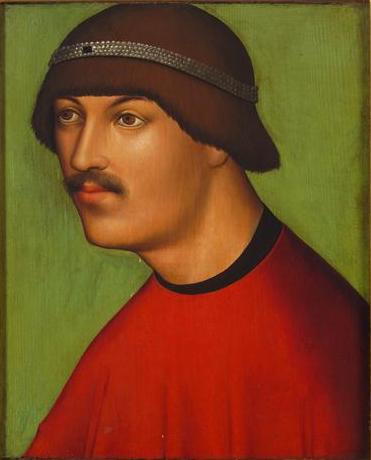
Albert of Habsburg 1437-1439
fans of @best-habsburg-monarch and Habsburgs in general will know him as Albert II.
at the start of his reign, he was forced to make concessions towards the nobility, which weakened the power of the king
might've gone back on them later when his reign was more consolidated (wouldn't be the first one, even Maria Theresa did this), might've not, we'll never know, because after an extremely short reign, he went to war with Ottomans and died of an illness
1 note
·
View note
Text
Apologies, it appears you have misunderstood the situation.
First off, our disagreement with the Holy See has been sorted out, they have already apologized and added us and @rulers-of-poland-tournament into their party invitations.
Second, we have a myriad of reasons why not to join you. When we first established this tournament, we had no idea who you people even are, since our historical memory ends in 1526, everything else we had to learn. Thank God for Wikipedia. Frankly, it was a bit of a shock to see how well the descendants of V.László's big sister are doing.
Of course, good for you and all that, but if in the past Hungarian people have chosen to side with their Habsburg overlords every single time, don't you think there might be a reason for that? If you don't believe me, ask yourself - where were you in 1848/1849...?
And goodness, don't start with the whole reformation nonsense, we have only experienced the beginnings of the real deal, but we also have quite a lot of memories of the, shall we say apéritif of lutheranism - which certainly aren't pleasant. https://en.wikipedia.org/wiki/Hussite_Wars#Glorious_rides_(chevauch%C3%A9e)
Our past disagreements with the Holy See, it must be said, were only ever with the politics of individual popes, never over the matters of doctrine! We are all good catholics here, our occasional flirting with orthodoxy (and plentiful marriages to orthodox princes and princesses) notwithstanding. Just ask I.István or I.László!
Lastly, we suspect "Hungarians" for you, 19th century people, means something completely different than it does for us here in the Middle Ages. We believe in reclamation of the kings of Hungary from these pre-nationalism times by every nation who has been under their rule, be it Saxons, Wallachians, Croats or Slovaks, a nation to which duchess of Nyitra belongs. But in times which your poll concerns, paths of these nations have diverged to such degree that they simply cannot create a united front which you, the Prussians, could ally with; if you ally with Hungarians, you are no friends to Slovaks, who in this period wanted to see us all Hungarized. For the sake of peace, we do not talk about these later disagreements; we are glad our descendants @best-habsburg-monarch were there to handle things (whether they did a good job we dare not judge, since we ourselves were never forced to deal with ethnic tensions of this calibre).
At any rate, thank you for your request, but no, a hundred times no.
(By the way, don't you have a colleague named Leo? @best-romanov-monarch-official stopped by to chat about our recent twin polls concerning our early history, and she mentioned something about wanting to invite him for a cup of tea.
Goodness, what a nice name, "Leo"... Sounds Byzantine...)
Apparently, there's a Best Pope Tournament at @best-pope-ever And neither we nor @rulers-of-poland-tournament were invited, which is a grave insult. We might've usually been on the periphery of Europe and our relations with the Holy See might not have been always ideal, but nonetheless - have the ROMANOVS produced not one but THREE catholic saints?! Of course not; these people are neither catholic nor, to be honest, all that saintly. Unfortunately, our descendants at @best-habsburg-monarch don't seem keen on joining with us in any kind of a boycott, and historically, going against the Holy See has not gone over well for us. On top of that, after starting that semi-serious feud with @best-habsburg-monarch, we are in danger of developing a reputation for litigiousness, which we'd like to avoid. In the end, all we can do is politely express our indignation in both our name and in the name of @rulers-of-poland-tournament at our omission. All we ask is that, in the future, His Holiness takes into account smaller nations from his flock together with the larger ones
(Seriously if any of you know more about church history than me, go vote. Like I could maybe recognize some of these guys, but really, only the most important and/or famous ones.)
21 notes
·
View notes